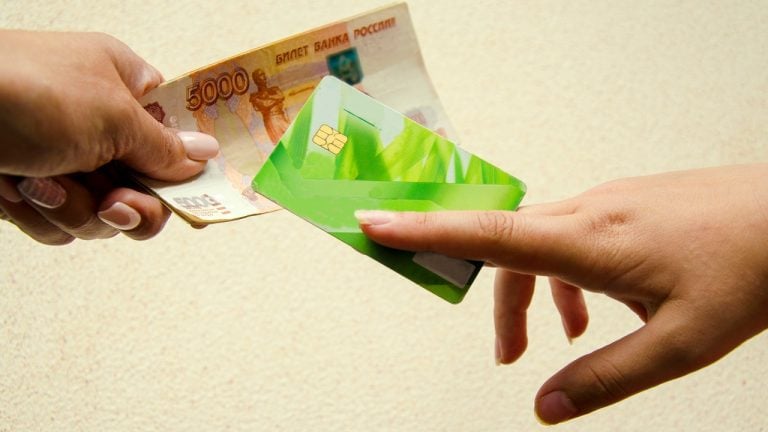Crypto Exchanges Bybit and Okx Drop Cards of Sanctioned Russian Banks

Cryptocurrency exchanges Bybit and Okx have discontinued support for payment cards issued by sanctioned banks from Russia. The moves follow in the footsteps of Binance, the world’s largest exchange for digital assets, which recently removed such cards from its peer-to-peer (P2P) platform.
Bybit and Okx Stop Operations With Sanctioned Russian Banks
Bybit and Okx, two of the top crypto spot exchanges according to data from Coinmarketcap, will no longer process transactions involving certain Russian banking institutions placed under Western sanctions, the crypto news outlet of the Russian business portal RBC reported.
On Okx’s P2P platform, the cards of Russia’s largest state-owned bank, Sberbank, largest private bank, Alfa-Bank, and the neobank Tinkoff, a major issuer of payment cards, have become unavailable among the offered payment options.
Russian users can still buy and sell coins for rubles on Okx through a bank transfer, using cards from the Russian banks Post Bank, Promsvyazbank (PSB), Raiffeisenbank, Russian Standard Bank, and Unicredit as well as through Russia’s Faster Payments System (SBP). Crypto purchases can be made also through the payment services Payeer, Paysera, Revolut, Skrill, Webmoney, Wise, Qiwi, and Yumoney among others.
On the P2P platform of the Dubai-based crypto exchange Bybit, Sberbank and Tinkoff have not been removed yet from the list of supported payment methods, but transactions using their bank cards cannot be carried out anymore, the report noted.
The news comes after , the world’s largest crypto exchange by trading volume, delisted sanctioned Russian banks from the payment methods supported by its P2P platform. It did this after a media report alleged that the exchange helps Russians move money abroad despite stating last year that it abides by sanctions imposed on Russia over the war in Ukraine.
Starting from Aug. 29, Okx also removed the option for Russian customers to make P2P transactions with the Russian ruble. “Users in Russia still have the option to trade other currencies. We understand that this may affect your trading preferences and we apologize for any inconvenience,” the exchange said in a statement posted on its Telegram channel.
In June, Okx limited some services for Russian residents, explaining its decision with the need to quickly respond to “market demands and regulatory requirements.” However, in August, the Seychelles-headquartered company restored access to its crypto trading website for Russian users.
Do you expect other major crypto exchanges to impose similar restrictions on Russian banks and users? Tell us in the comments section below.